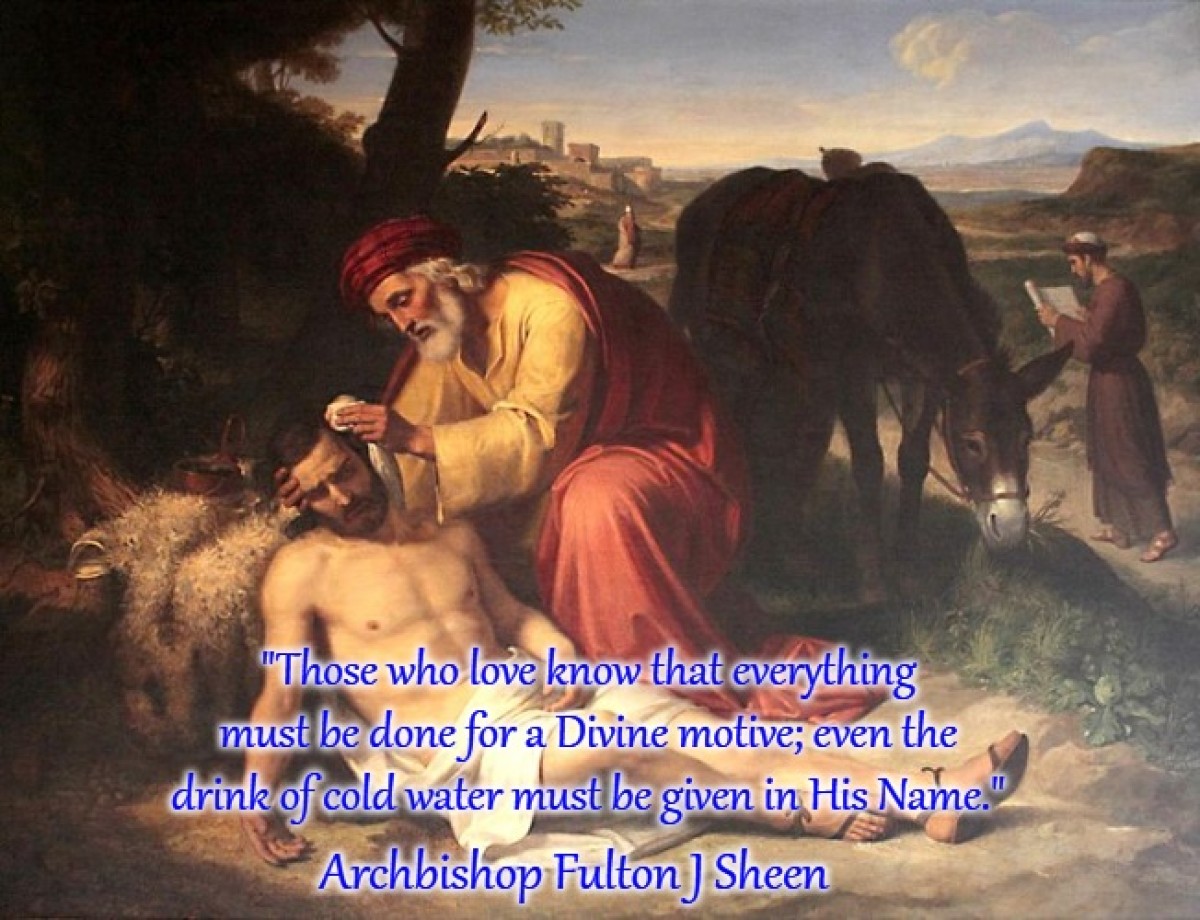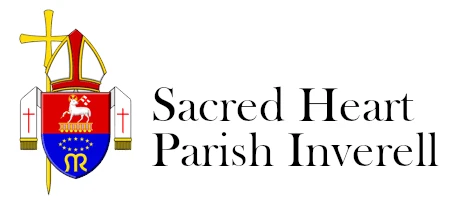15th Sunday in Ordinary Time (Year C) - 13 July 2025
13th July 2025

“He alone loves the Creator perfectly who manifests a pure love for his neighbour.” - St Bede the Venerable
A reflection on today's Gospel by the Venerable Archbishop Fulton J Sheen:
"A lawyer, anxious to justify himself, once asked Our Lord, ‘Who is my neighbour?’ The reason he sought to justify himself was that he knew he did not possess that Eternal Life of which Our Lord spoke. Wanting an excuse for not having it, he asked the question. He wanted declared beforehand the extent of his obligations. Peter had asked about the limits of forgiving; the lawyer now inquiries the limits of giving. Is it one of my race, my nation, my class, or one of my friends? And to what degree am I bound to assist? The Saviour answered by telling the story of the Good Samaritan. The point of the parable is not ‘Who is my neighbour?’ but ‘Have you the neighbourly spirit?’ Instead of asking, ‘Is this a worthy object of charity?’ Our Blessed Lord, suggesting ourselves, asks, ‘Are we a worthy subject for charity?’
"A picture magazine once carried a series of photographs of a person prostrate on the subway steps of New York. This individual was wounded, had fainted, or had had a heart attack. A photographer stood there for an hour, taking pictures of everyone passing by this stricken man. The pictures appeared in this magazine in order to indicate that no one was interested in the individual. Why did not the photographer help? There must also have been a number of people who, when they saw the photographer taking pictures, thought the incident might be a fraud. There are more subtle ways in our generation of passing by human wrecks than the apparently cold way of the priest and Levite. If the stricken man had been of their race, they would have helped. The danger today is in believing that there are no sick people, there is only a sick society.
"The Good Samaritan showed ‘compassion’. Sympathy of the weak for the strong is natural, for thus do the weak acquire strength and the hungry receive food. But sympathy of the strong for the weak is not so natural, because it means an apparent loss of strength, resources, or time to those who can give nothing in return.
"Those who work for love proceed on the principle that the rich need the poor more than the poor need the rich. By rich is meant those who have relatively more than those who are in grave need. The poor need the rich in order that they may have a roof over their heads, food in their stomachs, clothes on their backs, shoes on their feet. The rich need the poor in order that they may justify their stewardship of wealth, that they may thank God for the blessings that they have received, that they may have His grace in their hearts and His blessing on their being. The poor need the rich only for material reasons, but the rich need the poor for spiritual reasons. Hence, Our Blessed Lord said that those who have money are to use their money to make friends with it. Give it to the poor and they will intercede for us on the last day. As a beggar once said to someone at a church, ‘If you do not help me, who will intercede for you on the last day?’
"Then, those who love for a Divine reason also have a different way of handling the poor from anyone else. The difference between charity and philanthropy can be illustrated by a house. On the second floor live those with some superfluities; one the first floor live those who lack necessities. Philanthropy will leave the second floor and go down to the poor to supply their needs. But after is has done that, it returns to the comfort and maybe luxuries of its own floor. This is commendable and necessary, but it is not perfect love. St Paul said that if he distributed all his goods to the poor, and lacked charity or love of God, it would profit him nothing for eternal salvation. In true Divine love, those who have passed over to those who have not, never again come back. They stay there until the needy have been relieved of their sorrow, their pain, or their poverty, just as the model and inspiration, Our Blessed Lord, came down to this earth, crossed from the line of innocence over to the line of sinners, stayed with them, suffered with them, until He finally redeemed them. Saints understand this best. Each one says in his heart, ‘While there is pain, I suffer; while there is need, I want; while there is crime, I am guilty.’
"Those who love know that everything must be done for a Divine motive; even the drink of cold water must be given in His Name. On the last day, the great lovers of the poor who did things in His Name will be surprised that He was so pleased; they will wonder when they served Him. The nurse will ask, ‘You mean when I took care of the patient in Room 238, I took care of You?’ ‘You mean the file number 164 of our social organisation was You?’ And the Saviour will answer: ‘Believe Me, when you did it to one of the least of My brethren here, you did it for Me.’
"When people die, their friends ask, ‘How much did they leave?’ But the angels of Heaven ask, ‘How much did they take with them?’"
(Life is Worth Living)
Apostleship of the Sea
Sea Sunday, being the second Sunday in July, is the day on which the Catholic Church particularly prays for all seafarers and their families and give thanks for their lives and work.
Known to seafarers around the world as Stella Maris, the Apostleship of the Sea ministry is an apostolic work of the Catholic Church that cares for the spiritual, social and material welfare of all seafarers regardless of colour, race or creed. Parishioners who wish to support this Catholic ministry may make a tax-deductible donation through the organisation’s website www.stellamarisaustralia.org.
Art credit: The Good Samaritan by Pelegri Clave i Roque 1838AD


